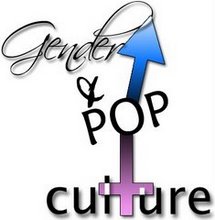Anime is very interesting in terms of its characters. The characters of almost every show both follow and reject societal norms them in very interesting ways. For example, one of the most talked about and respected Anime series of all time, Neon Genesis Evangelion, if filled with characters that are both hegemonic and counter-hegemonic. The show's main character Shinji Ikari is often faced with conflicts dealing with his self-esteem, how he feels others perceive him, and being true to himself instead of following the orders of others. A supporting character Asuka Langley Soryu is often faced with conflicts dealing with being the strongest, being the best, and almost every endeavor turns into a competition.
Now most of us would assume by reading these descriptions that Shinji is a girl and Asuka is a boy but in reality the reverse is true. Men are often perceived as those with aggression and a competitive nature, as addressed in the piece by Boyhood, Organized Sports and the Construction of Masculinities by Messnar. We perceive this because men re often socialized to be both aggressive and competitive. Messnar explains that many men engage in sports and other forms of competition to prove there worth among others and live up to or surpass the men before and around them. In Neon Genesis Evangelion, we see all of these qualities embodied by a female character. Shinji embodies many of the conflicts typically associated with female characters. In the article No: It’s Power is Distinct and Uncompromising, author Kiini Ibura Salaam discusses how hard it was for her to say “no” growing up because of the fear of disappointing her peers (“maybe,” “I’ll try” or “will see” would take the place of an all too decisive and offensive “no”). Female characters often are an exaggerated version of this basic idea; they are usually plagued with problems dealing with peer perceptions. We’ve all seen episodes of many shows with the girl who cares about not having the latest clothes, best makeup, or thinnest body. Rarely do we see any programs dealing with men facing these or similar issues.
Neon Genesis Evangelion succeeds in creating characters that defy the basic template that most forms of entertainment follow. It takes into account that not only men can be competitive, and not only women care about what the world thinks of them. It also acknowledges the truth that no of the conflicts I have addressed face men or women exclusively. In many ways, Neon Genesis Evangelion is quite progressive, but it makes one key mistake. Essentially, all it has done is swapped male norms for female norms and vice versa. It’s great that we have these very interesting characters that defy most of the established character norms, but it also introduces the new idea: people are either one or the other. It doesn’t do much (at least not until the final episodes) to acknowledge the fact that these characters can be both aggressive and self conscious (characters are red or blue, not purple). In the end, the show doesn’t really say “men and women are equal and suffer from the same problems,” it says “Shinji is weak like a girl because he has girl issues, and Asuka is aggressive like a man because she wants to be the best.” Also, the fact that “becoming the best” is associated with attributes that are associated with males implies that males are the best and you have to be like them to be successful or better; not a very progressive message at all.


1 comment:
Leo- You're capturing so many important ideas here that are relevant in so many settings--it's hard to know where to begin!
I think that your point about swapping the gender roles as a non-transformative maneuver is quite insightful. Your recognition that the changing of the roles and assigning the others' gender doesn't make them any more transgressive or counter-hegemonic, but instead leaves them quite problematic as ideas that have the potential to be perceived as counter hegemonic (when they're not necessarily transformative perceptions of gender at all).
Although I would take issue that this representation is minor, you seem to be getting the feel for analyzing your topic and where to look for gender-related sources.
I just have to remind you to be careful that your topic's 'counter-cultural' status doesn't immunize it from pervasive hegemonic messages (or insulate it from reacting to them in a progressive/transformative) and still has the potential to fall into the trap of reinscribing the hegemonic norms (even when it's not consciously doing so, or even when it's aiming to counter those same norms).
Try to stay focused as you have, on the the powerful issues/categories/social constructs you've identified here, with some analytical skepticism, you'll be authoring some amazing original content :o)
Post a Comment